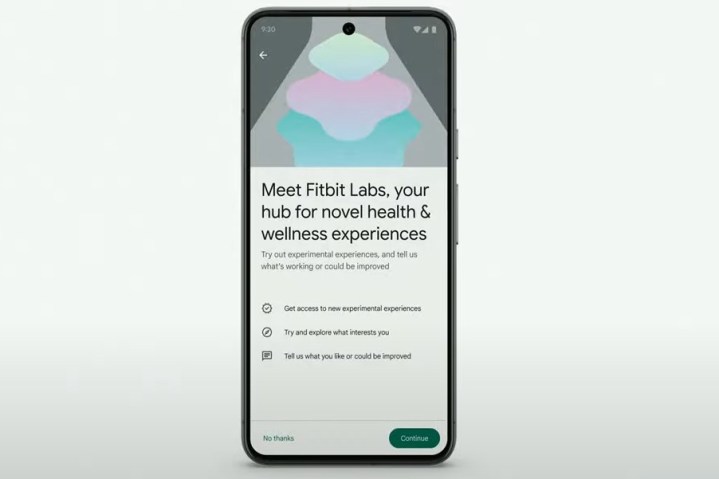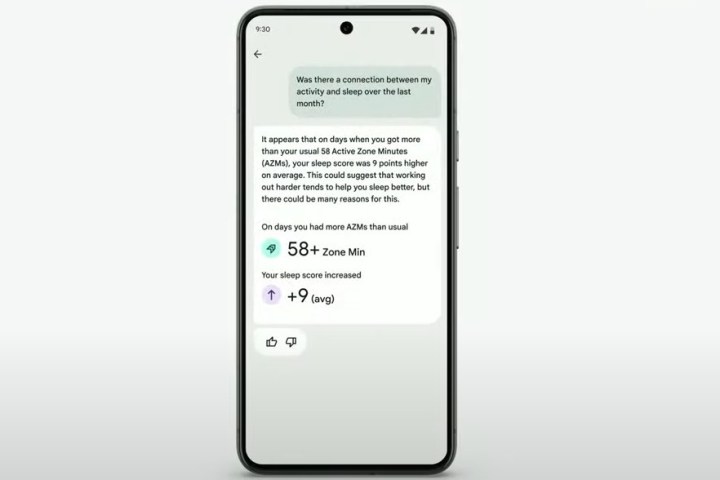
Google says it is bringing what it calls a “Personal AI” across its product portfolio, thanks to generative AI advancements and the development of models specifically for health care. Fitbit is a part of that vision and will rely on the experimental Fitbit Labs, where users will be able to access features later this year as part of a trial phase.
At Google’s recent The Check Up event, the company said it wants users to understand better the wellness data collected by the sensors on their bodies, both smartwatches and smartphones. An AI tool in the Fitbit app will assess that data and present it in an easy-to-understand format, like charts.
Of course, the AI will also offer actionable insights to users based on their workout and lifestyle routines. But there’s a chatbot twist here. Google has built an AI assistant that users can talk to about their health data and gain more detailed insights.
For example, users can ask it questions like, “Is there a linked pattern between my sleep habits and daily activity metrics?” In such scenarios, the AI will review the sleep and activity log and give users the required insights, such as telling users how they sleep better on a day when they are more active based on their daily active minutes data.

Down the road, it will be able to establish links between more biomarkers such as heart rate activity, exercise intensity, heart rate variation, and more. The experience will be available for “a limited number of Android users” who have signed up for Fitbit Labs testing. Google is also developing a Personal Health Large Language Model to bring such health-focused AI features to life.
Google says it will be a fine-tuned version of the company’s Gemini model, which is already running natively on devices like Google Pixel 8 Pro and Samsung Galaxy S24. The ultimate goal is to create an “on-demand personal coach” that can not only offer valuable insights but also guidance that can help users make changes and improvements wherever necessary.
In the near future, these AI-driven health experiences will be delivered via Pixel phones, Fitbit and Pixel Watch wearables, Pixel smartphones, and Pixel earbuds.
Of course, there’s a standard disclaimer here. “It is not meant to diagnose, treat, mitigate, cure, or prevent any disease, injury, or condition,” says Florence Tang, Google’s Director of Product. Instead, it is simply meant to help users reach their fitness goals with more information and guidance than ever before, thanks to AI.
You can read more about Google’s Personal Health Large Language Model and the AI-tethered health innovations while The Check Up event is embedded above.
Editors' Recommendations
- A new Google Pixel 8a leak just revealed three huge upgrades
- The iPhone’s AI future just got a lot more interesting
- A big Google Pixel 9 feature just leaked, and it sounds impressive
- Have a Google Pixel phone? You’re about to get these new features
- Your Google Pixel phone may soon get a lifesaving feature




